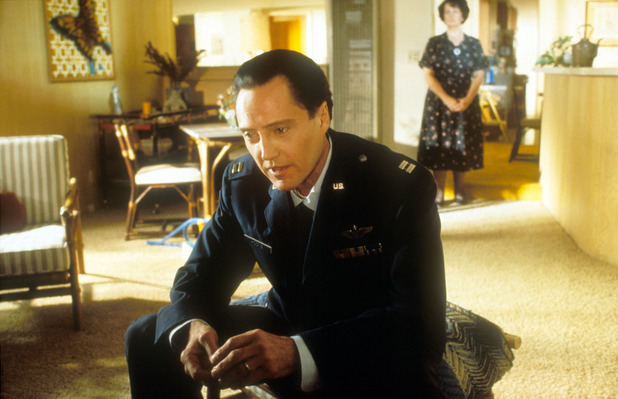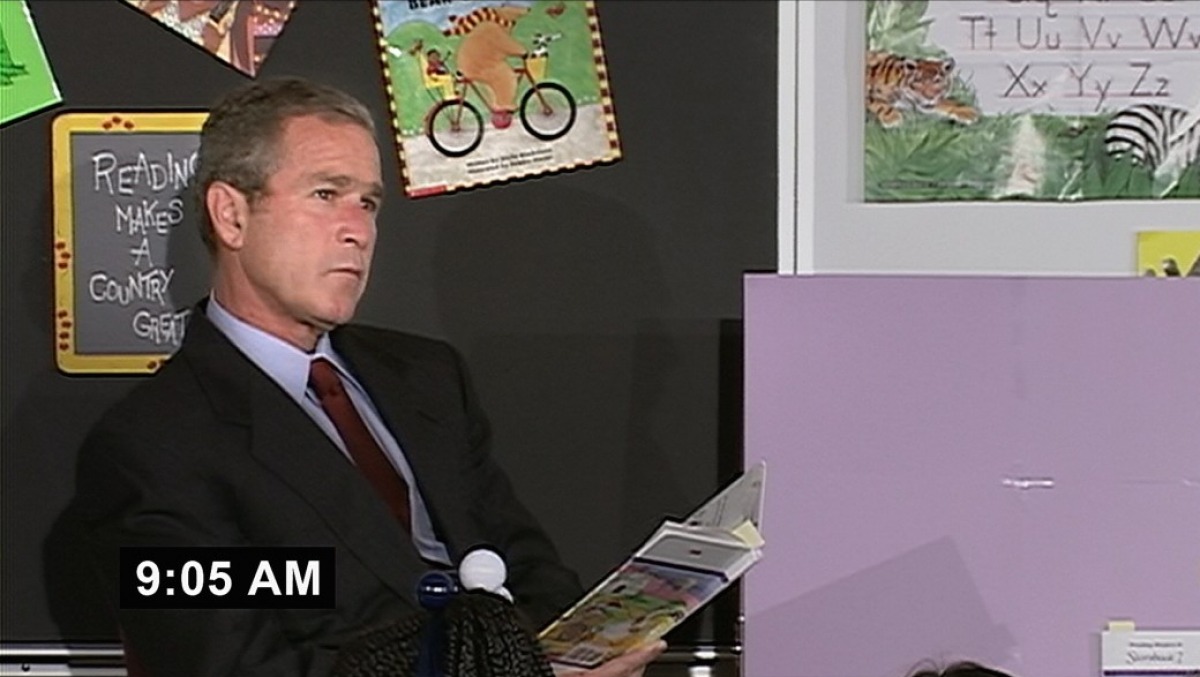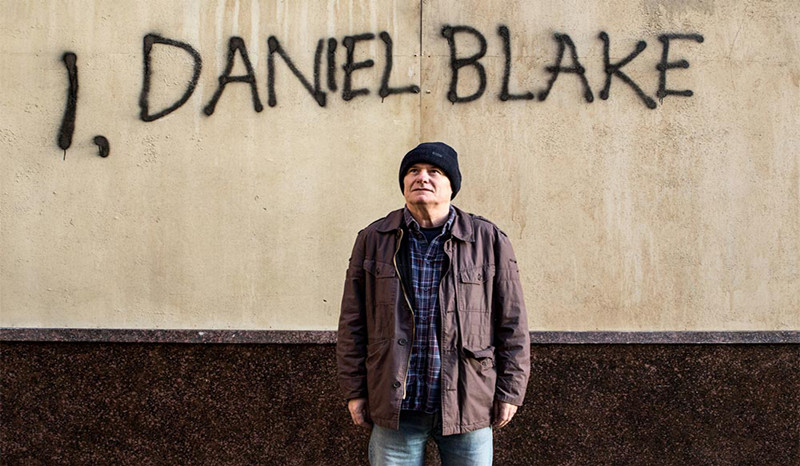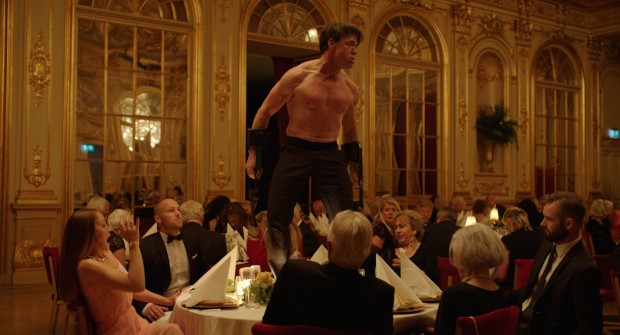6. Pulp Fiction (Quentin Tarantino, 1994)

Pulp Fiction is without a doubt the most popular Palme D’or winner of all time, which is why its selection for this list will most likely be a controversial one. The film became a social phenomenon soon after it was released in theaters, and the film deserves all of the praise it receives, but this was not the year for Tarantino to win.
At the 1994 Cannes Film Festival, Krzysztof Kieślowski announced his retirement from filmmaking shortly after the premiere of Three Colours: Red, and most assumed the award was his by default. Instead, the Clint Eastwood led jury gave the award to Tarantino, leaving Kieślowski forever Palme D’or-less.
Pulp Fiction could have justifiably won the award almost any other year, but Three Colours: Red should have taken the prize without question. Not only was it possibly Kieślowski’s best work, but it was his last, and he deserved to win arguably more than anyone ever has. This sentiment was not uncommon among Cannes festival-goers who booed Tarantino after he won the award, which, to be fair, might have been a little harsh.
What Should Have Won: Without question Krzysztof Kieślowski’s Three Colours: Red deserved the Palme D’or more than any other film in competition.
7. The Son’s Room (Nanni Moretti, 2001)

Nanni Moretti’s The Son’s Room is an incredibly average movie. The film follows a family who suffers the loss of their son, and Moretti’s seemingly only goal is to make you feel sad with almost no justification or purpose behind it. Nothing particularly unique, interesting, or special occurs in The Son’s Room, it simply starts and ends, likely to be forgotten about by the viewer in the near future. This may make it the worst film to ever have won the Palme D’or.
The 2001 Cannes Film Festival was incredibly strong, and there were multiple outstanding films in competition. Auteurs such as David Lynch and Michael Haneke displayed some of their best work, with Jean-Luc Godard and The Coen Brothers bringing up the rear. The Son’s Room was a baffling choice for the Palme D’or, and it is deeply unfortunate that the jury choose to honor a film that would be forgotten about before it was even released.
What Should Have Won: David Lynch’s Mulholland Dr. was not only the best film in competition in 2001, but it is quite possibly the greatest film of the 21st century. The Piano Teacher would have been a perfectly satisfactory pick as well.
8. Fahrenheit 9/11 (Michael Moore, 2004)

2004 was, if anything, a peculiar year at the Cannes Film Festival. When the films in competition included both Shrek 2 and The Ladykillers it is not exactly surprising why Michael Moore’s exposé on Bush and The War on Terror took home the Palme D’or that year.
This, however, does not mean that Moore deserved the coveted award. Fahrenheit 9/11 is more of a feature length smear campaign than an intelligently made documentary. Moore knows exactly what facts and embarrassing clips to choose in order to further his point, excluding anything that doesn’t, and the argument itself is too scattered to make an impact.
It is true, however, that Fahrenheit 9/11 was a film made for its time, and much of the impact the documentary might have had during the political climate of 2004 is lost when viewed during the much different state America is currently in. The Quentin Tarantino led jury still could have done a better job selecting a film that would be able to stand the test of time.
What Should Have Won: Once again, 2004 wasn’t Cannes’ strongest year, but the Palme D’or still would have been more fitting in the hands of either Park Chan-wook for Old Boy or Wong Kar-wai for 2046.
9. I, Daniel Blake (Ken Loach, 2016)

I, Daniel Blake was without a doubt the most uninteresting film in competition at the 2016 Cannes Film Festival. The film follows an elderly construction worker’s attempt to get welfare after a heart attack. I, Daniel Blake is significantly more one dimensional than the majority of Ken Loach’s other work, and the British director certainly did not need a second win under his belt. The film simply wanders aimlessly without producing any actual commentary beyond the fact that bad people are bad and good people are good.
The only highlight of the film is the performances from both Dave Johns and Hayley Squires, who both make the film watchable. This, however, was most likely the reason for the film’s success considering that the jury, led by George Miller, mainly consisted of actors. Almost all of the film’s competition were vastly superior, making I, Daniel Blake’s win especially disappointing. The Salesman, Paterson, Toni Erdmann, The Handmaiden, and Aquarius all towered over Ken Loach’s sappy, poorly written drama.
What Should Have Won: Pretty much anything else.
10. The Square (Ruben Östlund, 2017)

The most recent winner of the Palme D’or unfortunately also deserves to be a part of this list. The Square was not by any means bad, it is actually very enjoyable, but it was far from the standout of what was one of Cannes’ strongest years. It is unlikely that even Ruben Östlund himself expected to win, considering that his film mostly mocks the pretentiousness of people who share a surprising resemblance to the majority of Cannes attendees.
The film certainly has its moments, but it fails to justify its win outside of a few enjoyable scenes that are too few and far between. The Square might not be on this list had it been in competition another year, but 2017 was such a strong year at Cannes that the Palme D’or would have been better off in the hands of a multitude of more interesting films from unique filmmakers.
What Should Have Won: Either Good Time, Loveless, The Killing of a Sacred Deer, or Happy End would have made better picks.
Author Bio: Jason Zuriff is a film buff from New York City who is majoring in Cinema Studies at the Tisch School for the Arts. He hopes to one day become a professor in film, or a film critic, or both.